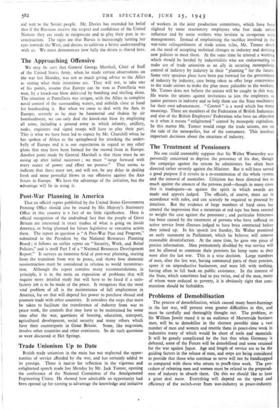The Approaching Offensive
We may be sure that General George Marshall, Chief of Staff of the United States Army, when he made certain observations on the war last Monday, was not so much giving advice to the Allies as stating what their intentions are. They will not, to take one of his points, assume that Europe can be won as Pantellaria was won, by a knock-out blow delivered by bombing and shelling alone. The situation at Pantellaria was unique, with the Allies in complete naval control of the surrounding waters, and airfields close at hand for bombarding it. But when we come to deal with the Axis in Europe, severely as he may be hammered and shaken by air bombardment, we can only deal the knock-out blow by employing all arms, including a ground army in which infantry, artillery, tanks, engineers and signal troops will have to play their part. This is what we have been led to expect by Mr. Churchill when he has spoken of Africa as the springboard for attacking the under- belly of Europe and it is our expectation in regard to any other plans that may have been formed for the second front in Europe. Another point made by General Marshall is that there must be no easing up after initial successes ; we must " surge forward with every ounce of power and effort we possess." That seems to indicate that there must not, and will not, be any delay in dealing fresh and more powerful blows in our offensive against the Axis forces in Europe. We have the advantage of the initiative, but the advantage will lie in using it.






























 Previous page
Previous page